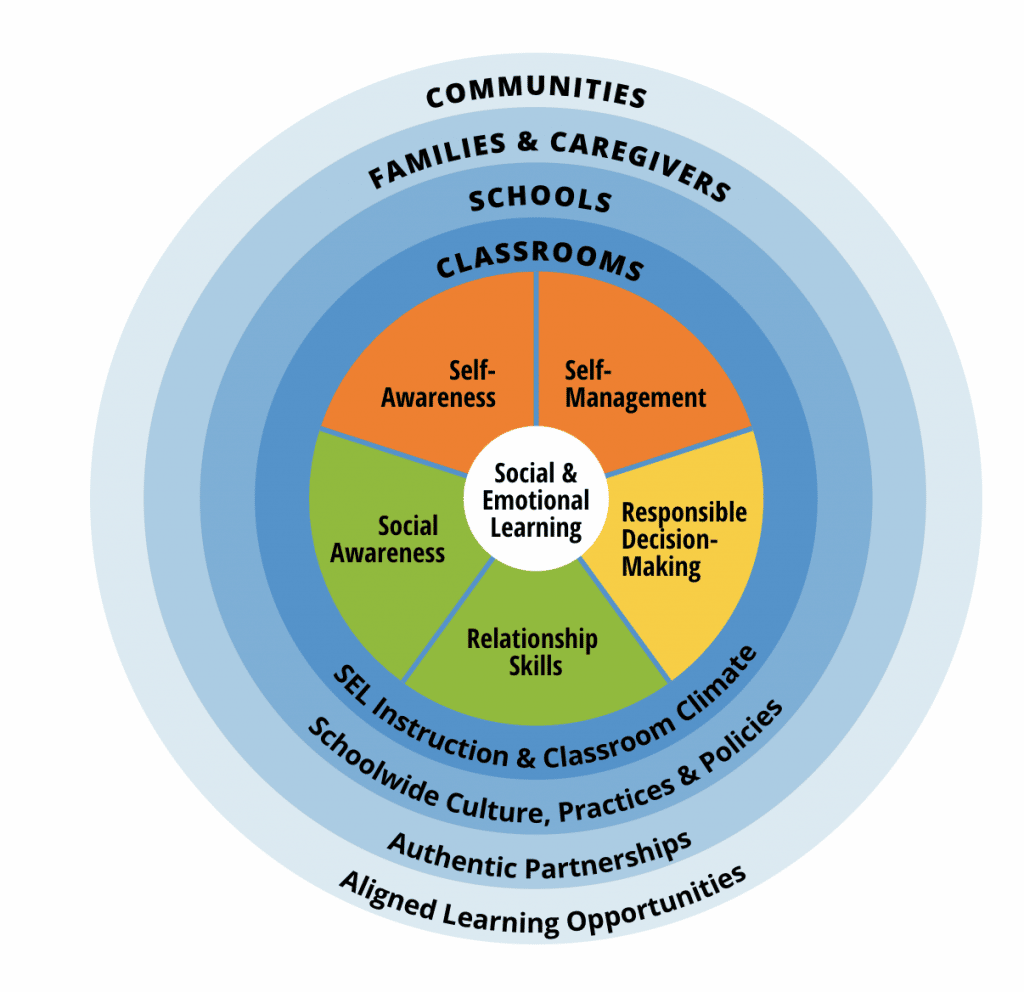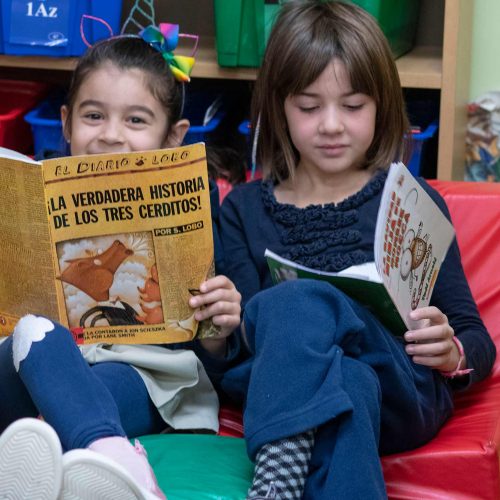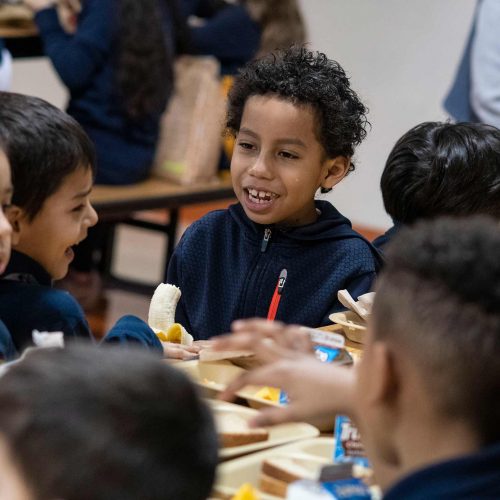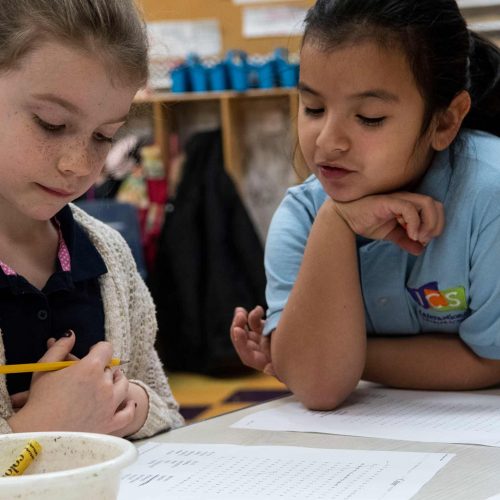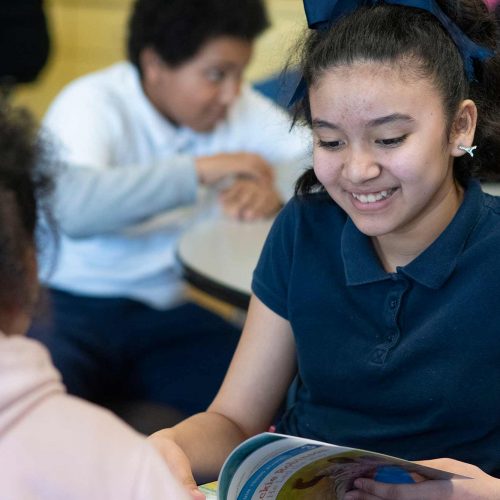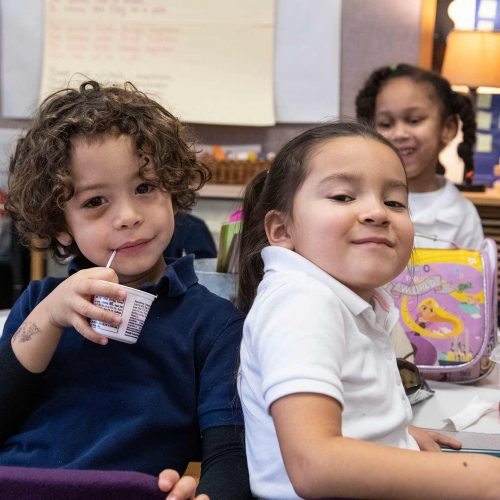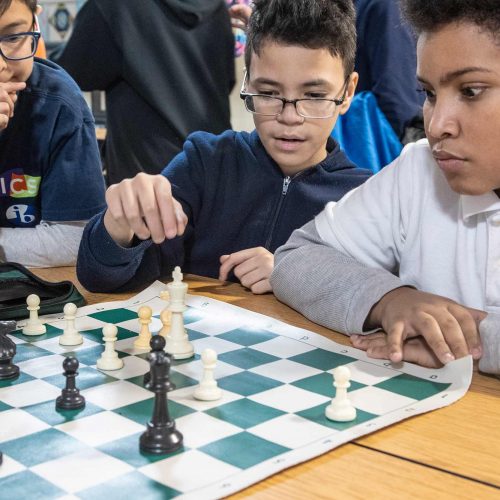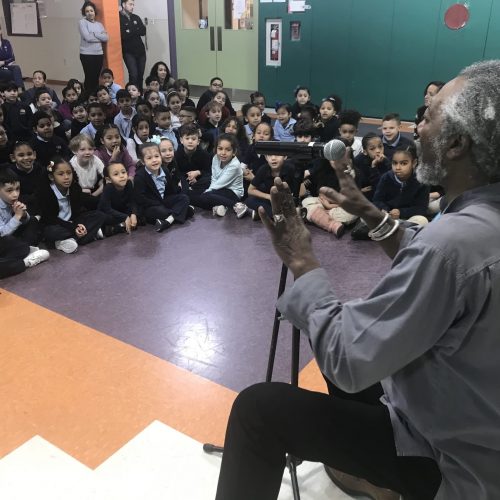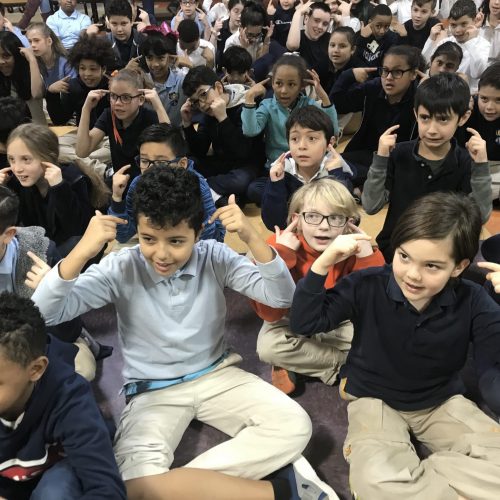Social and Emotional Learning
ICS recognizes the value of educating the whole child.
At ICS, we recognize the value and importance of fostering the development of the whole child, which includes social and emotional learning (SEL). The Rhode Island Department of Education defines SEL as “a process for helping children and adults develop the fundamental skills for success in life.”
In 2017, the Council for Elementary and Secondary Education endorsed RI SEL Standards: Competencies for School and Life Success (English and Spanish). ICS includes these five competencies as part of each student’s report card:
- Self-Awareness
- Self-Management
- Social Awareness
- Relationship Skills
- Responsible Decision Making
Click on interactive wheel to learn more.
ICS uses three evidence-based programs to help encourage positive social interactions, foster social-emotional development, and provide the necessary support: Responsive Classroom, Positive Behavior Interventions & Supports (PBIS), and Second Step.
Responsive Classroom
Responsive Classroom is an important part of everyday life at ICS. It is an evidence-based approach to teaching intended to help our entire school community establish and live in a manner that supports respectful behavior. The emphasis is on helping students develop their academic, social, and emotional skills in a learning environment that is developmentally responsive to their strengths and needs. Key elementary practices include
- Morning Meeting – Everyone in the classroom gathers in a circle at the beginning of each school day and proceeds through four sequential components: greeting, sharing, group activity, and morning message
- Establishing Rules –Teacher and students work together to identify goals for the year and establish a clear and consistent approach to discipline that fosters responsibility and self control
- Energizers – Short, playful, whole-group activities that are used as breaks in lessons
- Quiet Time – A brief, purposeful and relaxed time of transition that takes place after lunch and recess, before the rest of the school day continues
- Classroom Organization – Strategies for arranging materials, furniture, and displays that encourages independence, promotes caring, and maximizes learning
- Family Communication Strategies – Ideas for involving families as partners in their child’s education
Positive Behavior Interventions & Supports (PBIS)
PBIS is an organized approach that focuses on teaching, modeling, and acknowledging positive behaviors. At ICS, we expect students to be respectful, responsible, and dedicated. Students are encouraged to demonstrate their proficiency of these positive behaviors in their classroom and school community, at home, and in the world. Activities, events, and school functions highlight and celebrate students’ success with becoming global citizens who internalize the importance of showing and receiving respect, responsibility, and dedication. Key elements of PBIS include:
- Outcomes – Academic and behavior targets that are endorsed and emphasized by students, families, and educators
- Practices – Interventions and strategies that are evidence-based
- Data – Information that is used to identify status, need for change, and effects of interventions
- Systems – Supports that are needed to enable the accurate and durable implementation of the practices of PBIS
Second Step
Second Step is a social-emotional learning program that helps create a supportive, successful learning environment equipped to encourage children to thrive.
ICS provides both a social worker and a behavior support teacher to facilitate the learning of critical social and emotional skills using the Second Step curriculum. Each week they visit classrooms to help students learn how to manage emotions and behavior, get along with peers, and solve problems peacefully—all essential skills that will help students succeed in school and life.
Family Resources
Here is a partial listing of national resources and resources available in Rhode Island.
Housing and Emergency Help
United Way of Rhode Island 2-1-1
Mental Health and Counseling
Psychology Today – Therapists in Rhode Island
Bullying
Prevention: How to Teach Kids How to Identify Bullying and How to Stand Up to It Safely
Friendships
How to Help School Age Children Navigate Friendships
Divorce
Helping Your Child Through a Divorce
Healthy Divorce: How to Make Your Split as Smooth as Possible
Domestic Violence
